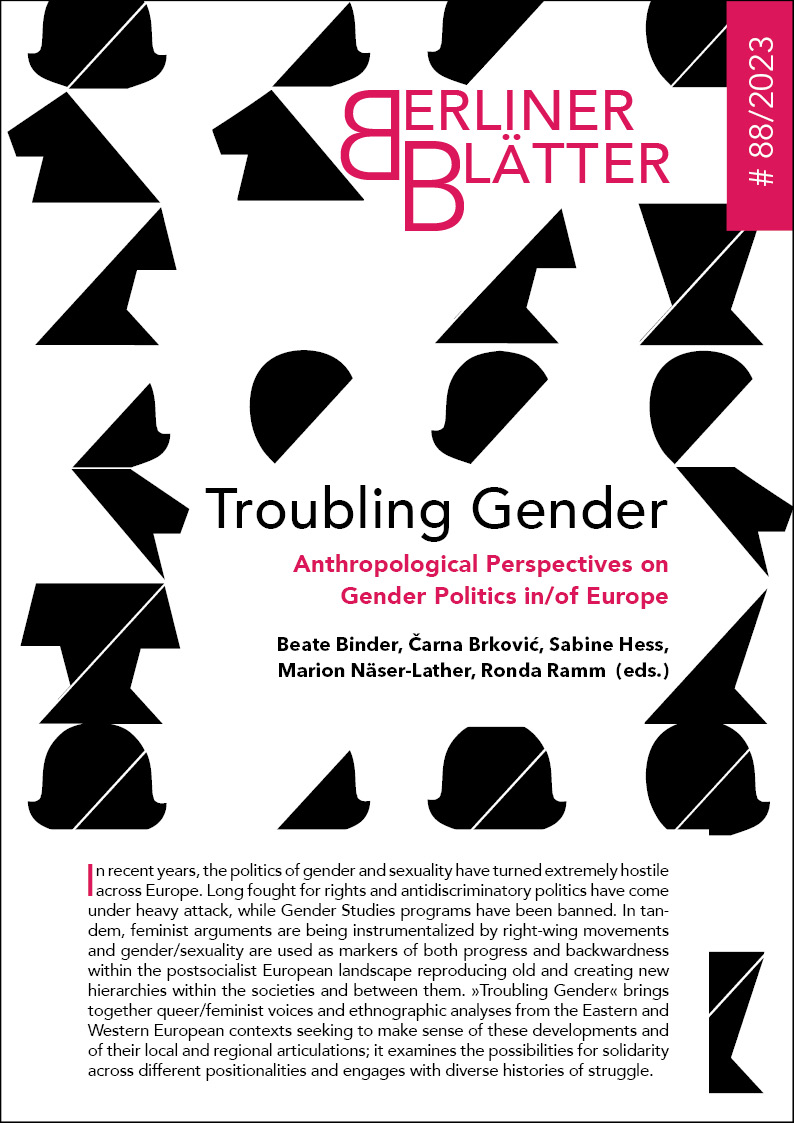Angry Posters
Decoding the Political Aesthetics of Visual Pro-Choice Protest in Poland
DOI:
https://doi.org/10.18452/28001Keywords:
poland, visual culture, protest, pro-choice activism, feminismAbstract
Stigmatisation, illegality and a gradually removal from public health services in Poland since the late 1980s prove that abortion is a seismograph for changes in politics, public debate on ethics and religion, and the country’s prevailing ‘traditional’ character. This contribution examines the evolving role of political aesthetics, its turmoil, and symbolic intensity in Polish pro-choice discourse. It investigates how protesters produce, circulate, and shape pro-choice protest through visual signs and slogans and what is the role and impact of protest images within the Polish ‘war on abortion’. Three “angry posters” involving symbolic appropriation, (anti)national subversion and citation of popular culture are presented: Barbara Kruger’s Your Body Is a Battleground (1991/2020), Jarek Kubicki’s FUCK OFF!/This Is War (2020), and Ola Szmida’s Fighting Polish Woman (2016). The article addresses the highly expressive takeover of imageries, symbols, and aesthetic codes – a female halved black-and-white face, the 1989 Solidarity poster, the Warsaw Uprising “anchor” and the lightning bolt – in favour of women’s rights and pro-choice activism by drawing on theoretical approaches to visual culture and the politics of aesthetics, movement framing and protest mobilization, and emotions as cultural practice. Finally, the study considers some implications of visual images for feminist practice and aims at a critical discussion of feminist imageries and their political power (or its lack) to withstand or bring about transformative social change in a time of rising populism, anti-genderism and religious fundamentalism in Europe.
Downloads
Published
How to Cite
Issue
Section
License
Copyright (c) 2023 Berliner Blätter

This work is licensed under a Creative Commons Attribution-NonCommercial-ShareAlike 4.0 International License.








